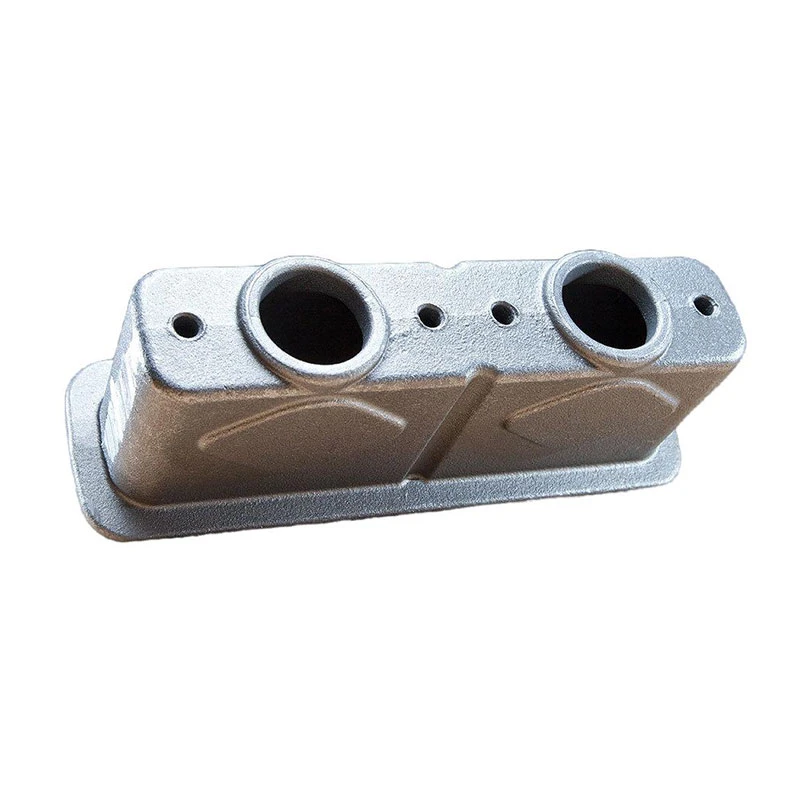precision metal stamping
Precision Metal Stamping An Overview
Precision metal stamping is a manufacturing process that plays a crucial role in producing various components across multiple industries, including automotive, aerospace, electronics, and medical devices. It involves the use of specialized tools to transform flat metal sheets into precisely shaped parts following specific designs and tolerances. This method is celebrated for its efficiency, cost-effectiveness, and ability to produce high-quality components consistently.
The process begins with the selection of a suitable metal, which can vary from stainless steel, aluminum, brass, to copper, depending on the intended application. Once the right material is chosen, the next step is to create a die, which is a mold that defines the shape of the part to be stamped. This die is machined with extreme accuracy to ensure that the final product meets the required specifications.
Metal stamping can be performed using various techniques, including progressive die stamping, sheet metal stamping, and deep drawing. Progressive die stamping involves a series of dies that perform distinct operations as the metal strip moves through the machine. This method is particularly advantageous for high-volume production, as it minimizes the need for handling and allows for continuous processing.
On the other hand, deep drawing is used to create more complex three-dimensional shapes and may involve a single die or multiple stages. This technique is crucial for producing items like beverage cans, automotive components, and intricate electronic parts. Each of these stamping methods has its unique advantages depending on the complexity of the design and the production volume required.
precision metal stamping

One of the significant advantages of precision metal stamping is its ability to deliver high precision and repeatability
. Modern stamping machines are equipped with advanced technology that allows for tight tolerances and intricate designs, ensuring that each part produced is identical to the last. This is especially important in industries where parts must fit together perfectly, such as in medical devices where precision can affect functionality and safety.Furthermore, metal stamping is an efficient process that can significantly reduce material waste compared to other manufacturing methods. By utilizing flat sheets and optimizing die design, manufacturers can maximize the use of raw materials, leading to cost savings and a lower environmental impact. Additionally, the speed of metal stamping processes means that large quantities of parts can be produced in a relatively short time, further enhancing efficiency.
Beyond efficiency and precision, the versatility of metal stamping is another key benefit. It can be employed to create a wide array of products, from simple washers and brackets to complex components used in advanced machinery. The ability to incorporate secondary operations, such as welding, threading, and surface treatment, post-stamping enhances its flexibility, allowing manufacturers to offer complete solutions to their customers.
However, entering the precision metal stamping industry requires careful consideration of several factors. Initial tooling costs can be high, as custom dies need to be created. Therefore, manufacturers must evaluate production volumes and the overall demand for the stamped parts to justify these costs. Additionally, choosing the right partner for die design and manufacturing is crucial, as the quality of the die directly impacts the stamping process and the quality of the finished product.
In conclusion, precision metal stamping is an essential manufacturing process that provides remarkable advantages in efficiency, precision, and versatility. Its widespread applications across various industries highlight its significance in modern manufacturing. As technology advances, we can expect further improvements in stamping techniques and equipment, making it an even more valuable resource for engineers and manufacturers alike. Whether you are in the automotive sector or the realm of consumer electronics, precision metal stamping remains a cornerstone of high-quality production.
-
Aluminium Pressure Die Casting High-Precision & Durable Solutions for Complex PartsNewsJul.08,2025
-
Top Aluminum Sand Castings Manufacturer – Precision Green Sand Castings for Industrial NeedsNewsJul.08,2025
-
Precision Lost Wax Casting Quotes – High Accuracy Custom Parts Lost Wax Precision Casting ServicesNewsJul.07,2025
-
High-Quality Sand Used for Casting - Superior Sand for Sand Casting ProcessesNewsJul.07,2025
-
China Supply High End Metal Stamping Parts Sino - Precision Manufacturing FactoryNewsJul.06,2025
-
High-Quality Automotive Investment Casting Services Precision & Sand Casting SolutionsNewsJul.06,2025















